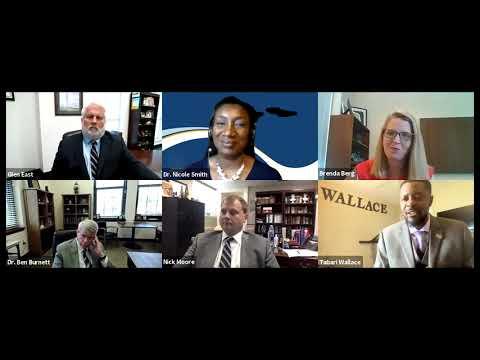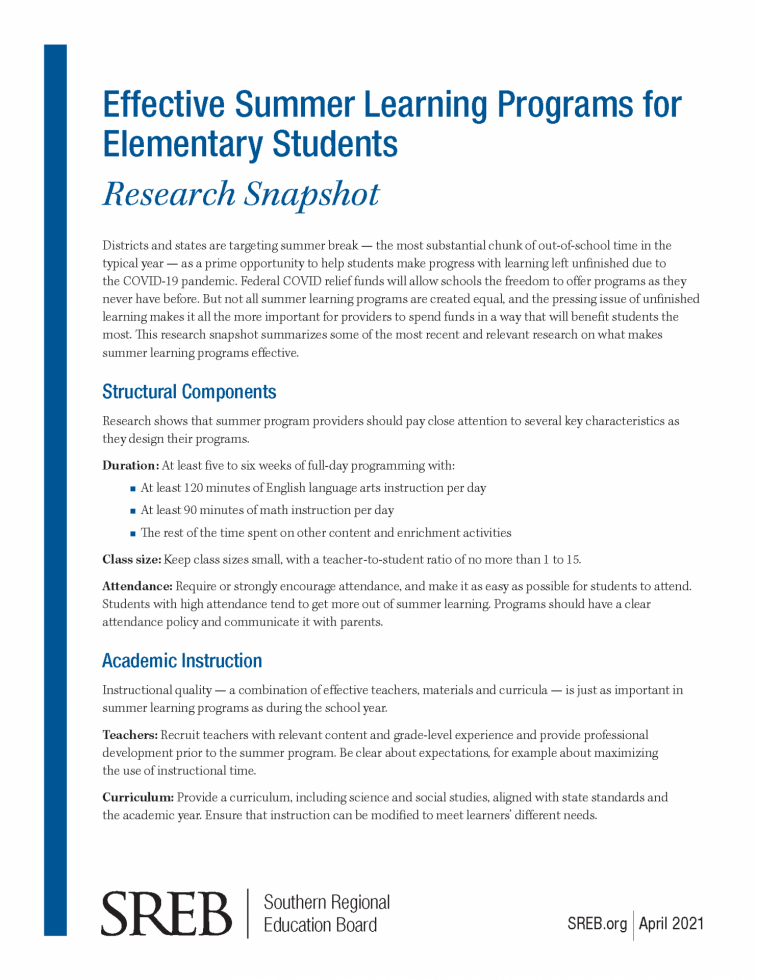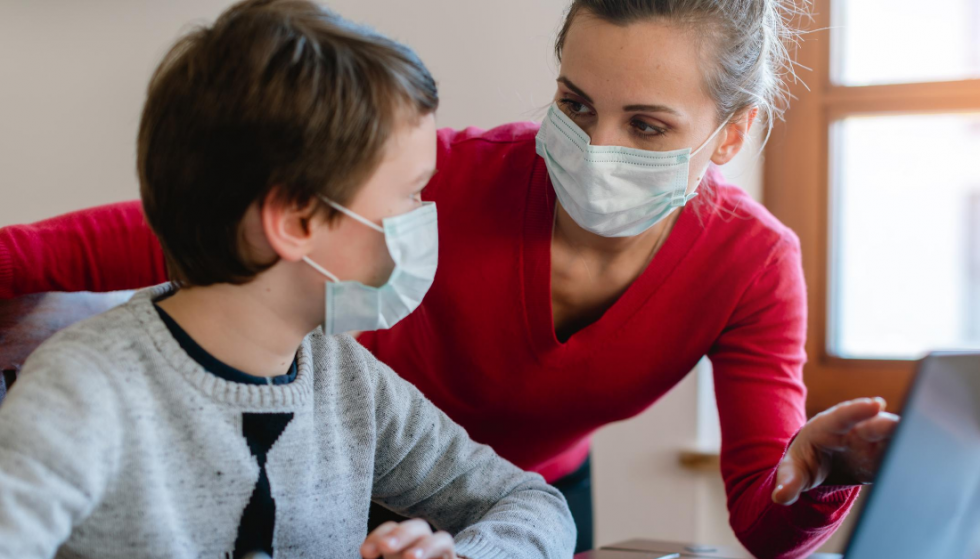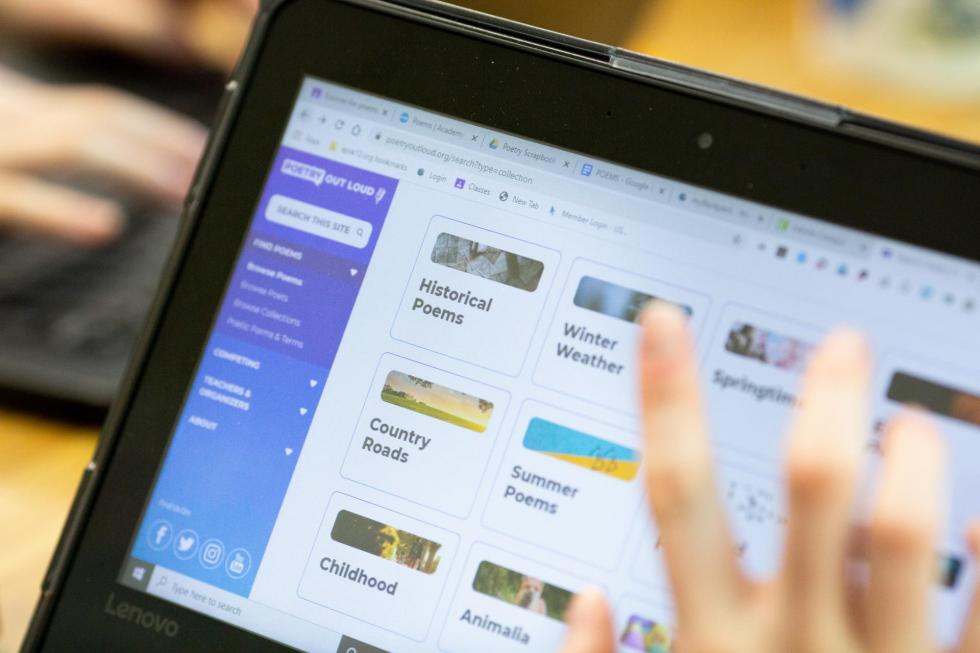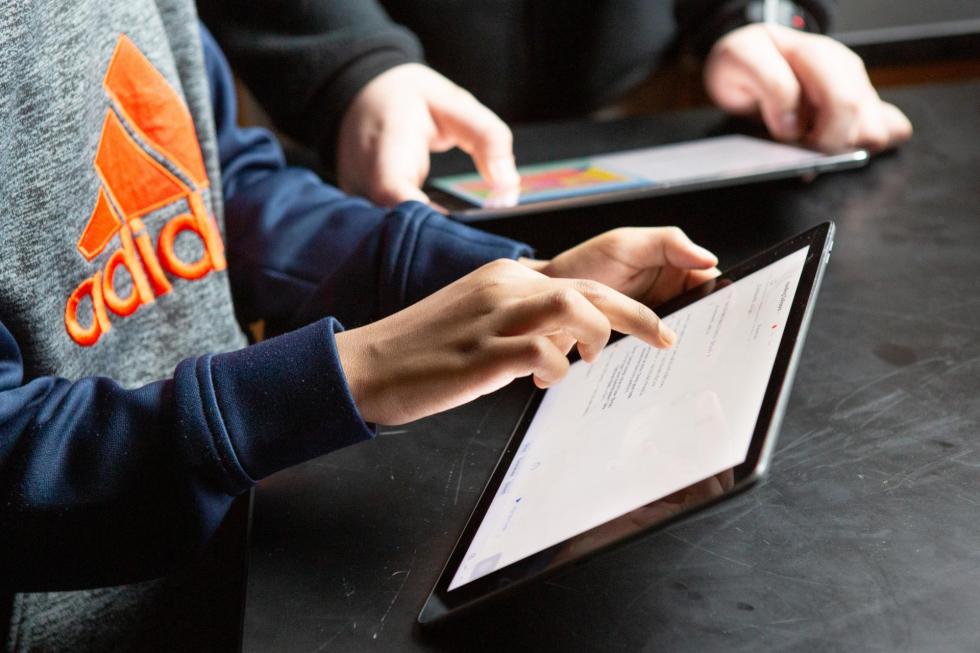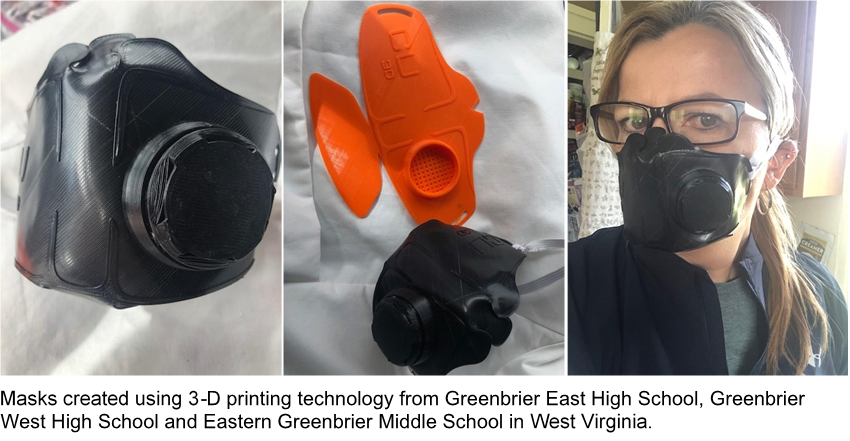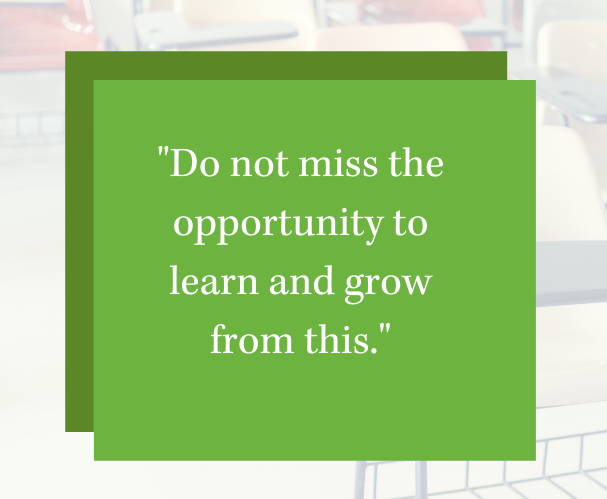K-12 Resources
K-12 Resources
SREB is working with states to find ways to help schools as they face the challenges of virtual and face-to-face learning during the COVID-19 pandemic.
We’ve been working with educators and school, district and state education to provide resources and guidance for online teaching, state and district planning, serving students with disabilities, school counseling and more.
Addressing Teacher Shortages
To Sustain Education, the Workforce and Economy
View the webinar recording
This panel explored how P-12 teachers are essential to not only student learning but also postsecondary education and the workforce – and how teacher shortages can threaten state economies in the long run.
Effective Summer Learning Programs for Elementary Students
Research Snapshot
Many districts and states are targeting summer break as the best opportunity to recover unfinished learning caused by the COVID-19 pandemic. With the federal COVID relief funds, schools can offer summer learning programs as they never have before. This research snapshot provides a summary of the most recent and relevant research on effective summer learning programs to help providers design programs that will benefit students the most.
Career and Technical Education Resources
STEM and career and technical education teachers need to be able to offer hands-on learning experiences in a virtual format. Below is a list of resources compiled by various organizations, including the Technical College System of Georgia, the Association for Career and Technical Education, SREB staff and educator participants in SREB’s CTE in a Virtual Setting workshops and webinars. This list includes virtual labs, simulations and interactive learning objects that allow STEM and CTE students to engage with and explore the world of science and technology in an online setting.
General
- Merlot virtual labs (Biology, Chemistry, Physics, Environmental Science, Engineering, Math)
- PHET simulations (Physics, Chemistry, Earth Science, Math, Biology) from the University of Colorado Boulder
- EdPuzzle* integrates with learning management systems and can be used to host teacher videos as well as external videos for instruction
- CTE teachers who participated in SREB’s CTE workshops recommend Screencastify as a tool for capturing teacher videos
- Commonlit offers a large library of free non-fiction and disciplinary texts as well as lessons and assessment tools
- Newsela takes authentic content from the world’s most trusted providers and turns it into learning materials that are classroom-ready
- KnowItAll.org from the South Carolina ETV Commission offers curricular materials and videos for grades K-13+ in all areas, including CTE. KnowItAll’s Let’s Go series offers 3D VR tours and field trips.
- DitchThatTextbook offers free e-resources, tools and templates for teachers
- GetEpic offers a digital library of books and reading resources for educators
- Wisc-Online is a repository of high-quality free educational learning materials, organized by Career Cluster, that were created by subject matter experts from the Wisconsin Technical College System and Fox Valley Technical College.
- Google’s Applied Digital Skills curriculum
Introduction to Biology
- Lab safety from BioNetwork
- Cell size and scale from the Genetics Science Learning Center at the University of Utah
- Virtual labs by Glenroe, list provided by Biology Corner
- Biology virtual labs by the National Science Teaching Association
Chemistry of Life
- Cells and membranes:
- Membrane channels from the University of Colorado Boulder
- Patterns of inheritance – mendelian genetics from Massachusetts Institute of Technology
- Molecular biology
- DNA extraction from the Genetics Science Learning Center at the University of Utah
- DNA microarray from the Genetics Science Learning Center at the University of Utah
- RNA lab from PBS
Chemistry
- The Virtual Lab is an online simulation of a chemistry lab. It is designed to help students link chemical computations with authentic lab chemistry. Students select from hundreds of standard reagents and manipulate them as in a real lab.
- Phet chemistry from the University of Colorado Boulder:
- Virtual chemistry from the University of Oxford
Computer Science
- Cisco Networking Academy
- CCNA R&S Curriculum
- CCNA Security
- Cybersecurity Essentials
- Introduction to IoT
- Introduction to Packet Tracer
- IoT Fundamentals
- IT Essentials
- Mobility Fundamentals
- Networking Essentials
- DevNet Sandbox makes Cisco’s free spread of technology available to developers and engineers by providing packaged labs we call Sandboxes. There are two types of sandboxes, Always-On and Reservation. Each sandbox typically highlights one Cisco product. Sandboxes can be used for development, testing APIs, learning how to configure a product, training, hack-a-thons, etc.
Environmental Science and Natural Resources
- University Corporation for Atmospheric Research provides a directory of educational games, simulations, and virtual labs related to weather, climate, atmospheric science and the sun and space weather
- Environmental science and ecology from Edumedia
- Colorado Parks and Wildlife educational resources
- U.S. Forest Service educational videos
Geology
- Teaching geoscience online Teach the Earth the portal for
Earth Education
Human Anatomy
- eSkeleton from the University of Texas at Austin
- Zygote body 3D anatomy viewer
- Anatomy Arcade
- Amrita rodent anatomy from Amrita University
- The Howard Hughes Medical Institute (HHMI) Biointeractive is an independent science philanthropy that invests in biomedical scientists and science educators to advance both human health and our fundamental understanding of biology
- An online examination of human anatomy and physiology from Get Body Smart
- Inner Body – view and study various human anatomy systems
Oceanography
- Ocean current from NASA
- Plate tectonics from the University of Colorado Boulder
- Resources for earth science education from Bigelow Laboratory for Ocean Sciences
Physics
- Phet physics from the University of Colorado Boulder
- Amrita physic virtual labs from Amrita University
Electronics, Mechatronics, Robotics and Manufacturing
- AllAboutCircuits Videos
- Epson SCARA Robot simulation FREE software tutorial from Dunwoody College of Technology
- MultiSim (Require software/licenses) circuit design suite tutorial from Dunwoody College of Technology
- ToolingU offers online manufacturing courses
Welding
- Video from Dunwoody College of Technology
Agriculture
- Resources to support agriculture teachers during remote learning from Wakelet curated by Dr. Robin McLean
Business and Marketing
- MBA Learning Center for business, marketing, management and entrepreneurship content from MBA Research and Curriculum Center.
- Aquilla Social Media Mindset marketing curriculum. In response to COVID-19, Aquilla is making their curriculum free for the remainder of the school year with no obligation to purchase to any school who is shutting down and needs online curriculum. Contact info@aquillaed.com
- Full online business courses, such as How to Write a Business Plan, from U.S. Small Business Association.
Engineering and Technology and STEM
- COVID-19 teacher resources for technology and engineering education from the International Technology and Engineering Educators Association
- STEM at Home from Learning Blade
- STEM in 30 from the Smithsonian Institution
- STEM teaching resources from NASA
- ScienceBuddies offers free lessons, activities, projects, videos and other resources for teachers, students and parents
- TeachEngineering from the University of Colorado Boulder offers a digital library of more than 1,500 K-12 engineering curricular items aligned with Next Generation Science Standards, such as lessons, hands-on activities and maker challenges
- OnShape.com offers free CAD for parts, assemblies, drawings and basic CAM
- James Dyson Foundation design engineering resources
Family and Consumer Sciences and Culinary/Hospitality Education
- Nai Wang of KP Education Systems co-hosts a high school culinary teachers’ group on Facebook that creates and shares free Bitmoji lessons
- Culinary instructional videos from the National Center for Hospitality Studies, Sullivan University
- Virtual tours of restaurants and hotels around the world: http://www.virtualfieldtrips.edu.au/vft/index.html
- ServSafe offers free videos for culinary students
Health Sciences
- Free resources from Anatomy in Clay
- Great Diseases online curriculum from Tufts University School of Medicine Center for Science Education
- Teaching Tomorrow’s Disease Detectives: Science skills for the problem-based world from the CDC.
Heavy Equipment, Trade, Industrial and Manufacturing
- Contact local, regional or national heavy equipment companies and inquire about training materials. Many are working closely with educators to provide support during the COVID-19 pandemic.
- How It’s Made has a playlist of heavy machinery and construction videos
- National Geographic’s Megafactories brings manufacturing giants to life
- Construction trades online lesson plan from the National Association of Home Builders. See the directions below for joining the sharing site on Google.
- 1. Go to classroom.google.com and click “Sign In.” Sign in with your Google Account. 2. At the top of the page, click “Add” (or +), then “Join class.” 3. Enter the class code — 7zqbfqb — and click “Join.”
- To add lesson plans, go to the “Classwork” tab, click “+Create,” select “Material,” and begin to upload your lesson plan and description.
- Construction design 3-D modeling software from SketchUp
Cross-Disciplinary Resources, Safety and Career Exploration
Note: Some of the resources below are free and others have offered free access through a certain date.
- Free resources from the Association for Career and Technical Education, including CTE Learn Workplace Skills Tutorials and the Career Ed Lounge for communicating with your peers.
- SkillsUSA Career Essentials -This fundamental experiences course provides a comprehensive structure for supporting secondary students in exploring, developing and practicing essential career-readiness skills. This can be accomplished as an online course or a hybrid experience.
- Skills to Succeed Academy online multimedia experience for student career planning and exploration from Accenture. To access free modules, visit http://s2sacademy.org and register with ACTE Student Code 04ATgl and ACTE Staff Code 04ATgl9999 (this provides additional resources just for teachers and advisers)
- Career planning tools about career pathways and the employability skills required for success in the global economy from the Center for Global Education at Asia Society, ACTE and Advance CTE. All materials are available completely free-of-charge thanks to generous support from PMIEF. For more information, contact Heather Singmaster (hsingmaster@asiasociety.org) with any questions.
- Nepris offers virtual field trips and other real-world career exploratory experiences as well as a skills-based volunteering platform for organizations to extend education outreach and build a future workforce.
- O*Net’s Interest Profiler helps students decide what kinds of careers they might want to explore
- OSHA (the Occupational Safety and Health Administration) offers online training materials
- CareerSafeOnline provides resources and support to teachers in ensuring all students have a chance to earn their OSHA 10-Hour cards
- SkillsUSA CareerSafe online safety training
- S/P2 provides industry-specific online training in safety, environmental, ethics, HR and soft skills for businesses and career tech schools
- Integrate Ethics into Your Classroom materials from MBA Research
- Goodheart-Wilcox Learning Companion digital curriculum and activities
-
Overcoming Obstacles’ Life Skills Lessons for Remote Learning offers educators engaging activities they can use with their secondary school students while they are learning from home. Activities will help students identify their strengths, make better decisions, achieve their goals, develop a positive attitude, respect themselves as well as others, and handle the stress in their lives. To download the free handbook, click here.
- Learning Styles Inventories from SREB’s Social-Emotional Learning Webinar
- Learning Styles Online Inventory
- Education Planner Learning Styles Quiz
- Georgia Department of Education Learning Styles Inventory
- VIA Youth Survey (shared by participant)
- Overview of Compass Points
- Interest Inventories and Aptitude Tests from SREB’s Social-Emotional Learning Webinar
* SREB does not endorse specific service or technology providers or products.
COVID-19 Effects on the Teacher Workforce
In April, my mom called me with the news that my high school chemistry teacher, Mr. Metcalfe, who was rounding out his 42nd year of teaching, had died from COVID-19. I knew him from class, of course, but I also went to school with his son for 13 years and his family attended my grandparent’s church.
He was respected, loved and honored for his excellent teaching. His funeral was an all-day parade of cars through the high school parking lot, where community members waved and shouted condolences to his family. My mom said the cars stretched down the street for miles.
New digital tools proving valuable for teachers, students in long run
As a former teacher and principal in New Mexico who now works with educators across the country for SREB, I shared many educators’ concerns when the pandemic forced most schools online.
As the new school year starts, however, I’m discovering that some of the digital tools we’ve learned to use while teaching online can provide new ways for teachers to support students’ academic growth.
Consider a Virtual+ Approach to Blended Instruction
Since early April, I’ve participated in SREB’s K-12 Education Recovery Task Force, a coalition of state, district and school leaders and educators committed to safely reopening schools. You’ll find our work and related tools, templates and resources in SREB’s K-12 Playbook in Progress.
Promoting Student Collaboration in the Age of COVID-19
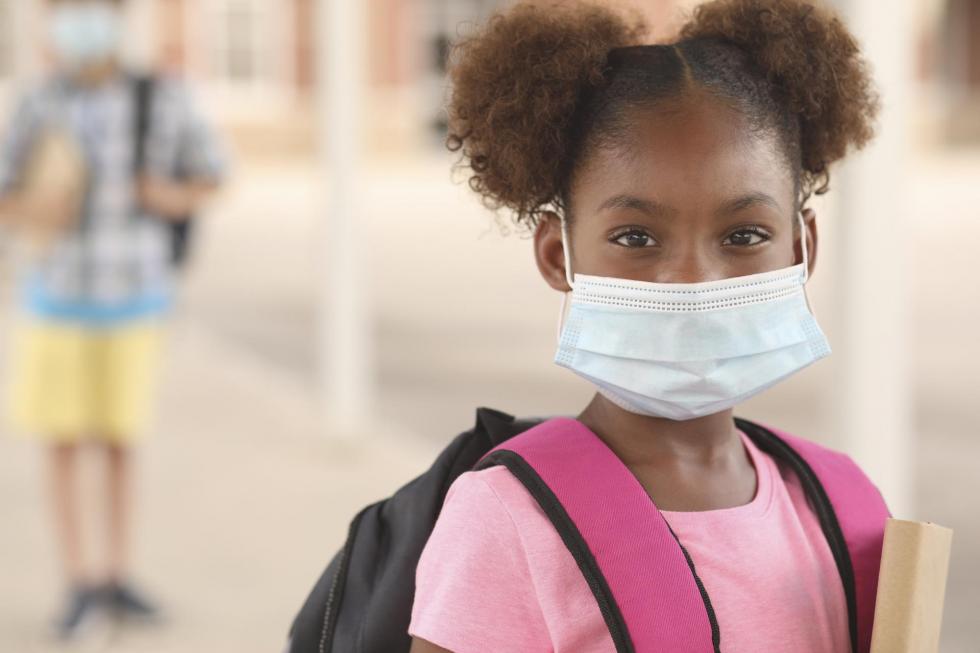 As schools and districts prepare for
the new year, student and staff safety is top of mind. Many are
buying extra cleaning supplies and developing protocols for
social distancing, wearing masks and proper hygiene.
As schools and districts prepare for
the new year, student and staff safety is top of mind. Many are
buying extra cleaning supplies and developing protocols for
social distancing, wearing masks and proper hygiene.
At SREB, we hear daily from teachers and leaders in search of strategies for delivering quality instruction while meeting safety guidelines. They ask:
“How do we reconnect with “lost” students who lacked access to online learning this spring?”
“Will social distancing require teachers to lecture to students sitting in rows?”
Online or Not: Four Actions for Quality Instruction of Elementary Students
“I learned how to support all of my students, no matter what format I’m asked to teach in — even those students I thought we could never serve outside school walls.”
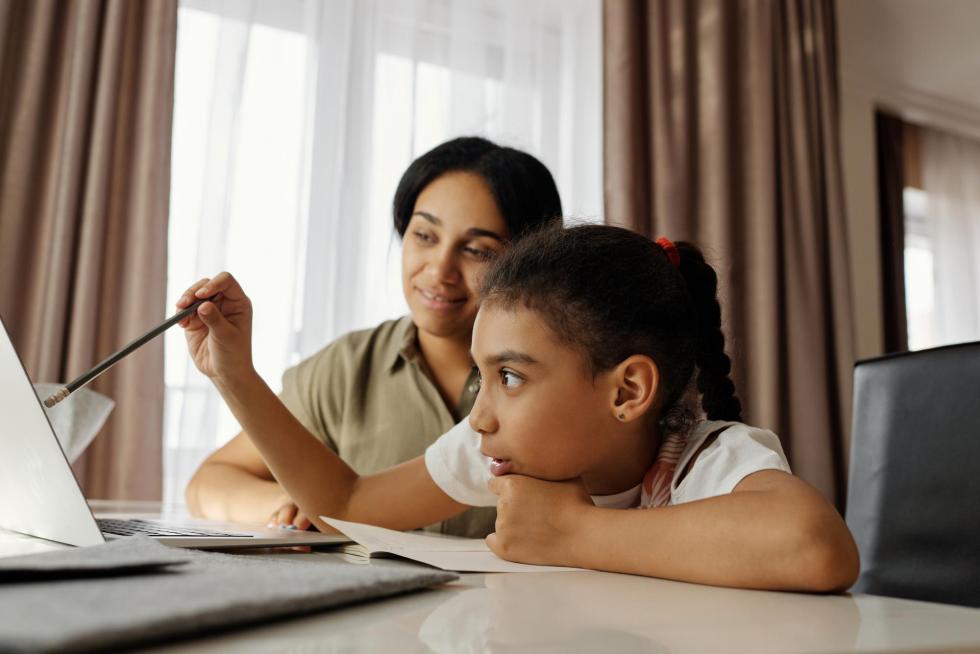 That’s what an elementary teacher
told me when I asked her what positives emerged from the shift to
remote learning this spring.
That’s what an elementary teacher
told me when I asked her what positives emerged from the shift to
remote learning this spring.
As we prepare to enter the new school year, one thing is certain — education is not going to look the same. The uncertainty of these times offers us opportunities to create a better experience for each of our elementary students, especially those with special needs, such as students with special needs, English language learners and students who need Tier 2 or Tier 3 instructional supports.
Webinar Follow-Up: School Counseling From a Distance
Supporting Students During COVID-19
View the Webinar Recording
 This webinar, hosted by SREB in
partnership with Common Application Inc. (Common App), built on
the previous webinar of the same name on how to provide school
counseling services virtually. In this webinar, a panel of
leading experts in school counseling shared their insights
on how they are supporting students’ academic, college/career,
and social-emotional needs when schools are closed or have moved
to online instruction.
This webinar, hosted by SREB in
partnership with Common Application Inc. (Common App), built on
the previous webinar of the same name on how to provide school
counseling services virtually. In this webinar, a panel of
leading experts in school counseling shared their insights
on how they are supporting students’ academic, college/career,
and social-emotional needs when schools are closed or have moved
to online instruction.
School Counseling From a Distance
Supporting Our Students During COVID-19
View webinar recording
In this webinar, Brian Coleman of Chicago Public Schools and 2019 ASCA School Counselor of the Year, shared his insights on how to support students’ academic, college/career, and social-emotional needs when schools are closed or have moved to online instruction. Brian stressed the importance of having a strategy first before diving in. Important things to consider are the legal and ethical issues involved, school district policies, and what technology tools your students have access to.
Resource for teaching and learning amid COVID-19
We have compiled resources for educators, districts and states on topics including online teaching, district planning, students with disabilities, school counseling and more.
Resources from Virtual Schools
Virtual Schools in SREB States, links to the region’s statewide online learning sites
Advice from North Carolina Virtual School Leaders
Handling Extended School Closures
View webinar recording
As states across the country manage the COVID-19 global pandemic, districts and schools have been forced to rethink teaching and learning methods as they have moved to digital learning and online platforms. In this webinar, state virtual school leaders in North Carolina shared resources that could be useful in other states and districts.
Advice from Georgia Virtual School Leaders
Handling Extended School Closures
View webinar recording
As states across the country manage the COVID-19 global pandemic, districts and schools have been forced to rethink teaching and learning methods as they have moved to digital learning and online platforms. In this webinar, state virtual school leaders in Georgia shared resources that could be useful in other states and districts as they grapple with extended school closures.
K-12 Education Recovery Task Force to Serve 16 States
Leaders from 16 states will serve on a new regional Education Recovery Task Force to help states determine the best strategies for reopening K-12 public schools, providing each student with the support they need, and planning for a possible COVID-19 resurgence and future emergencies, the Southern Regional Education Board announced today.
Better Together
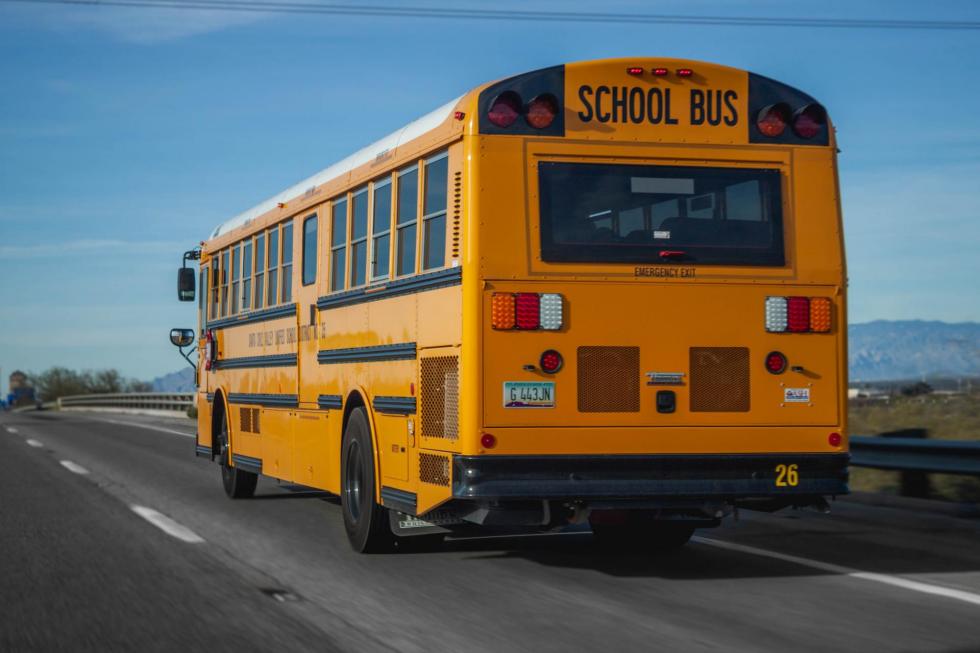 After weeks of struggling with the
fallout of COVID-19 — working remotely, social distancing,
helping neighbors when we can — I’m quite sure no one needs to be
told that we’re living in “unprecedented times.” That seems clear
enough.
After weeks of struggling with the
fallout of COVID-19 — working remotely, social distancing,
helping neighbors when we can — I’m quite sure no one needs to be
told that we’re living in “unprecedented times.” That seems clear
enough.
Our teachers are coping with a digital environment that most were not trained for, trying to maintain their focus on equity to be sure every child has a chance at a quality education, meanwhile managing houses and budgets and families and concerns about their health, as we all are. It’s more than anyone was prepared for.
CTE Centers: Answering the Call for Care Amid COVID-19
Fred Rogers said, “When I was a boy and I would see scary things in the news, my mother would say to me, ‘Look for the helpers. You will always find people who are helping.’” In this unprecedented time of crisis, many are rising to be helpers. All across the United States, healthcare workers are leaving their families and risking their lives to take care of all who are suffering with the coronavirus. Schools and career and technology centers are also coming together to donate much-needed resources and use their equipment to make face masks for those on the front line.
Virtual Labs for STEM and CTE Teachers and Students
We know that this is a challenging time for teachers across the country. Many of you have been plunged into the world of virtual learning without a lot of time to prepare. Following sudden school closures due to the COVID-19 pandemic, you’ve had to move quickly to shift your carefully planned lessons online so your students can continue learning at home. And those of you who are STEM and career and technical education teachers in particular face unique challenges as you work to adapt hands-on learning experiences to a virtual format.
What Admissions Professionals Want You to Know
Advice for School Counselors and Access Advisers During COVID-19
View webinar recording
The sudden onset and rapid spread of the coronavirus has caused many unforeseen consequences in (and rapid changes to) the college admissions process. In this webinar, Rick Clark, director of admissions at Georgia Tech and nationally-known author, shared the most up-to-date information that school counselors need to know about virtual interviews and campus visits, May deposit deadlines, incomplete high school transcripts, entrance exam testing, financial aid appeals and more.
School Counseling and Mental Health
Tips and guidelines for parents, counselors and mental health professionals on talking to children, crisis response, countering stigma and more, from the National Association of School Psychologists
College Admission Process
Online Professional Development Support for Educators
 As we enter our second and third
weeks of school closures and social distancing, I am amazed and
proud of our educators. I see school systems scrambling to feed
children. I see teachers preparing lessons, packets and online
resources. I see principals giving weekly messages, reading
bedtime stories online, leading virtual parades and calling every
teacher for weekly check-ins. I see heroes. But to be
quite honest, I saw these heroes before the advent of COVID-19.
As we enter our second and third
weeks of school closures and social distancing, I am amazed and
proud of our educators. I see school systems scrambling to feed
children. I see teachers preparing lessons, packets and online
resources. I see principals giving weekly messages, reading
bedtime stories online, leading virtual parades and calling every
teacher for weekly check-ins. I see heroes. But to be
quite honest, I saw these heroes before the advent of COVID-19.
Right now, our teachers need extra support.
Keep Next Year’s Teachers on Track
Immediate and longer-term policy actions for student-teachers
With colleges and schools closed for COVID-19, state leaders will need to act quickly to keep 60,000 teacher-candidates on track to graduate and enter the workforce in Southern states next year. SREB convened college of education and K-12 leaders from five states to discuss barriers and share ideas, and a new brief recommends short-term policy changes.
Distance Learning for Rural Schools During Extended School Closures
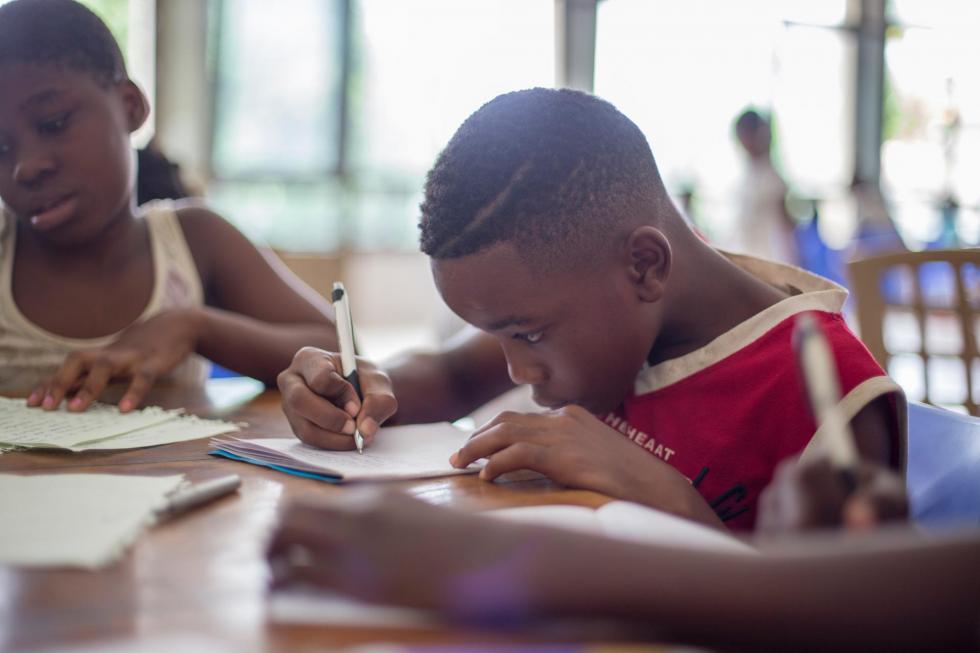 As we move further into the
COVID-19 crisis, rural schools across the U.S. are struggling
with how to continue students’ learning amid school closures. In
recent weeks, SREB instruction coaches have been collaborating
with educators in our region on how to deliver learning
virtually, and we’ve learned about the specific challenges rural
schools are facing.
As we move further into the
COVID-19 crisis, rural schools across the U.S. are struggling
with how to continue students’ learning amid school closures. In
recent weeks, SREB instruction coaches have been collaborating
with educators in our region on how to deliver learning
virtually, and we’ve learned about the specific challenges rural
schools are facing.



